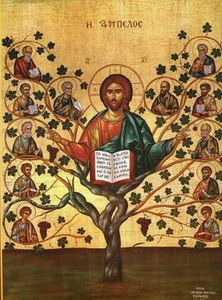Archbishop's message to the Middle East Council of Churches
Tuesday 29th November 2011
A message of support from the Archbishop of Canterbury, Dr Rowan Williams, to delegates attending the 10th General Assembly of the Middle East Council of Churches in Cyprus.
The full text of Archbishop Rowan's message follows.
Message from
His Grace The Archbishop of Canterbury
to the Council Presidents and Delegates
at the Tenth General Assembly
of the Middle East Council of Churches
Cyprus, 29 November—1 December 2011
Dear Friends, Beloved of Christ our Lord,
It is with profound joy that I take this opportunity to greet you, and to assure you—and through you to assure all our Christian brothers and sisters in the Middle East—of my prayers and solidarity, and the prayerful concern of the Church of England.
I am aware that you have a major agenda before you: to develop the work of the Council, and to model and re-fashion it to strengthen the whole fellowship of churches in the Middle East. I pray earnestly for your success.
I want also to take this opportunity to express once again my own deep concern about the current situation in the region, especially as it affects our Christian brothers and sisters. The Middle East is living through a time of dramatic and unpredictable change. This can only mean that these times are especially challenging and costly for you. Your Christian brothers and sisters in the West are acutely aware that the cost of your witness is greater than ever. I want to assure you not only that we are profoundly conscious of, and deeply grateful for, that continuing and costly witness; but that we are doing all that we can to ensure that the political leaders in our countries are properly aware of that reality.
It seems to me that our contemporary Christian witness—in the Middle East as elsewhere—is increasingly, together with other religious traditions, a witness to the intrinsic and inalienable human dignity of every human person; and to the unquenchable urge to see God’s justice made real and available to all, and especially in times of greatest uncertainty and instability. This is, and can only be, a shared endeavour and hope.
As you know, many religious leaders, including from the Middle East, met recently in Assisi in celebration of Blessed John Paul II’s 1986 initiative for peace. We met to give witness as pilgrims of truth and pilgrims of peace. Perhaps I might share with you what I said there:
The late pope believed passionately that the concerns of human beings in our age for justice and stability were matters that demanded a common witness from people of faith, without any compromise of our own particular convictions and traditions. The challenges of our time are such that no one religious body can claim to have all the practical resources needed to confront them, even if we believe that we have all we need in the spiritual or doctrinal realm. So we are to speak out of the depth of our traditions in all their distinctiveness, so that the human family will be more fully aware of how much wisdom there is to draw upon in the struggle against the foolishness of a world still obsessed with fear and suspicion, still in love with the idea of a security based on defensive hostility, and still capable of tolerating or ignoring massive loss of life among the poorest through war and disease.
I know from my own experience your desire as Middle Eastern Christians to contribute to meeting the needs of justice and stability in your nations and your region. May God, whose gifts and wisdom in Jesus Christ are infinite, pour out on you the blessings of his grace to equip his whole Church for this witness.
+Rowan Cantuar:
The Middle East Council of Churches (MECC) is a fellowship of the main Christian churches in the Middle East region - the Eastern Orthodox Churches, the Oriental Orthodox Churches, the Protestant Churches and the Catholic Churches. It was inaugurated in 1974, and is affiliated with the ecumenical World Council of Churches.
